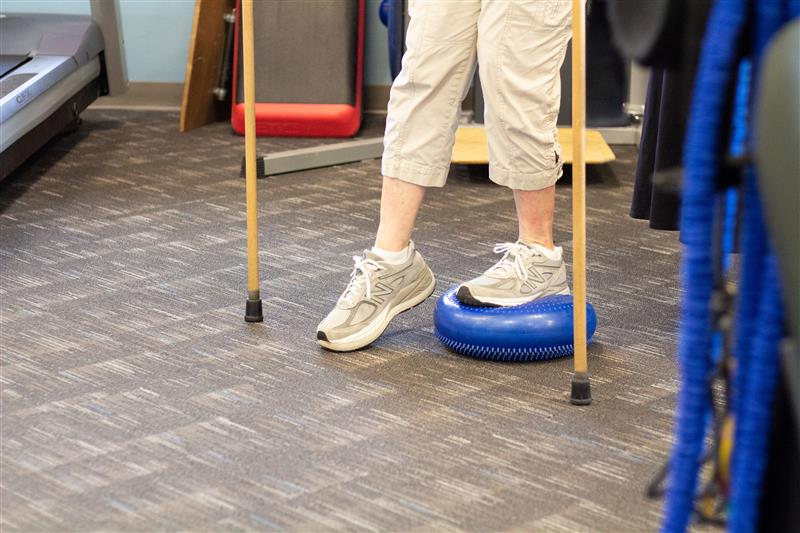Post-concussion syndrome (PCS) is a set of neurological symptoms that are typically associated with a head injury. While many people who suffer from a concussion will recover fully without physical therapy treatment, some develop post-concussion syndrome. According to the Center for Disease Control and Prevention, PCS is rare after only one concussion. Also believed to occur more commonly in patients with a history of multiple concussions.
Symptoms of Post-Concussion Syndrome
Concussions are like a “sprain to the brain.” Similar to a bad ankle sprain, the symptoms from PCS can continue for days, weeks, or months after the injury and will not resolve on their own. Although the symptom can be severe, the good news is that with the proper care, the majority of those living with post-concussion syndrome can lead successful and productive lives.
Post-concussion syndrome symptoms include:
- Persistent headaches
- Dizziness
- Problems with balance and coordination
- Difficulty concentrating or reading
- Fatigue
- Memory problems
- Sleep disturbances
How Can Physical Therapy Help?

Headaches
Post-concussion headaches often have tight muscle tissue and decreased upper neck mobility. The body will always try to find ways to protect an injured area, and in the case of a concussion, it is very common for neck muscles to tighten up. This can be painful and contribute to persistent headaches and fatigue. Your physical therapist will be able to assess and address these issues with techniques such as manual therapy and dry needling.
Balance & Dizziness
Physical therapists can thoroughly evaluate balance and dizziness and determine the appropriate individual treatment needed to return to your regular activities, including sports. Visual tracking difficulty is one common issue that causes dizziness and balance problems after a concussion. This involves the coordination between the muscles that move the eyes and the head. Visual tracking difficulties also interfere with reading and concentration. Your physical therapist will be able to assess your eye tracking status and address specific difficulties with this to restore your ability to move your eyes and head, usually to improve your balance.
Custom Recovery Plan
Your physical therapist will help you develop a plan specific to you, your symptoms, and your lifestyle. Physical therapy can help manage PCS symptoms and return to work, school, and daily activities.
Rest is Important for Recovery
After a concussion, getting plenty of rest is essential. Again, think of a badly sprained ankle. You definitely would be resting and elevating that ankle. As you progress to walking again, you wouldn’t be surprised that the affected leg might get tired of walking sooner than it did before the injury. In the same way, the brain needs to recover from the concussion, and it takes time to build endurance to get back to the same level as before the injury. Getting extra rest is helpful in recovery from a concussion, but rest doesn’t always mean sleep. It isn’t always practical to take a nap during the day, but short rest breaks after demanding activities can make a big difference in your recovery.

If you or a loved one is experiencing post-concussion symptoms, schedule a FREE injury assessment today, and we will help you get back to feeling like yourself again.



